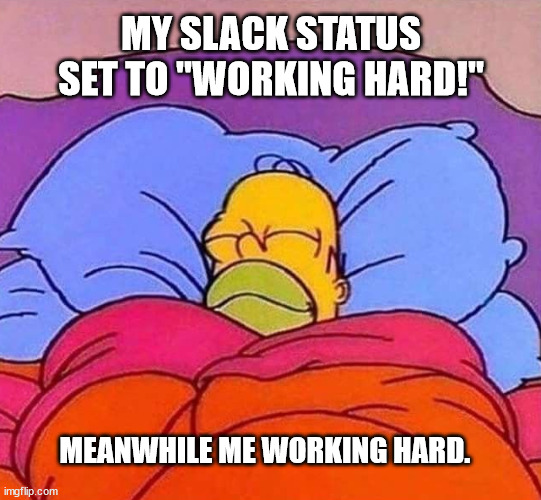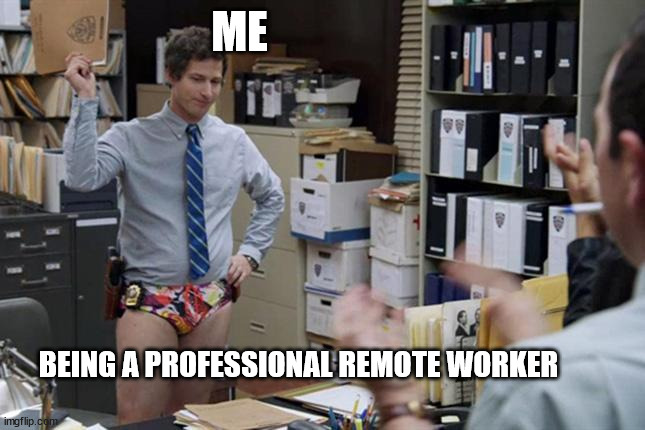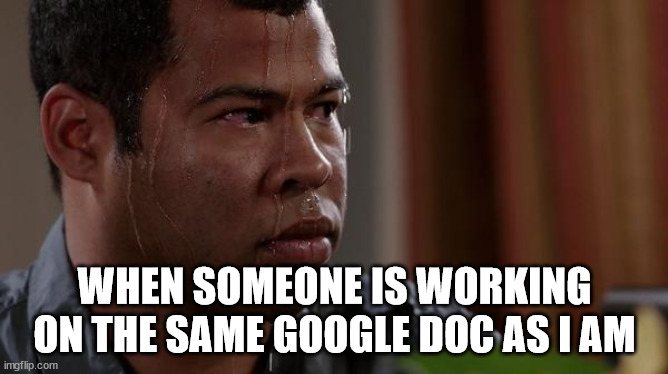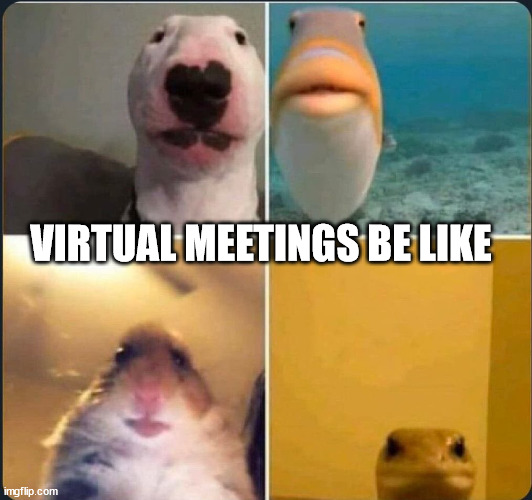Here’s a secret: you need to master the best remote work skills if you want to beat this game.
I’ve been a remote worker for years, and let me tell you, remote work isn’t for cowards. You’ll face many remote work challenges, so having the best skills is necessary.
But how do you know which remote work skills are the best?
Don’t worry. Join me as I share my 9 essential remote work skills to master working from home.
Ready? Let’s roll.
9 Best Skills For Remote Work
Here is my list of 9 best remote work skills you must master if you want to succeed:
- Motivation and self-discipline
- Time management
- Communication skills
- Digital literacy
- Flexibility
- Problem-solving and critical thinking skills
- Stress management
- Networking
- Continues learning
Let’s start with the most important skills required to be a fantastic remote worker.

Power naps improve your remote work productivity
1. Motivation And Self-Discipline
Motivation and self-discipline are the dynamic duo of remote work. Why?
Because motivation is your inner drive to achieve goals. Self-discipline is your ability to stick to tasks and routines, even when you don't feel like it.
And believe me, there will be days when you don’t feel like it.
Do You Have This Remote Work Skill?
Ask yourself the following:
- Do you set goals and meet them consistently?
- Do you stay on task without needing supervision?
- Do you find it easy to start working even on those days when your bed seems extra comfy?
If you answered yes to these questions, you have motivation and self-discipline. Congrats!
Don’t have this skill mastered? Don’t worry; just follow my tips to become motivated and self-disciplined.
My Tips, Tools, And Tricks To Master This Remote Work Skill:
Here’s what you must do if you want to improve your remote work skills:
- Set clear goals: Break down big projects into smaller, manageable tasks. Use SMART goals (Specific, Measurable, Achievable, Relevant, Time-bound) to keep yourself on track.
- Create a routine: Establish a daily schedule that mimics a typical workday. This helps in conditioning your mind to switch to 'work mode' even if you're at home.
- Use productivity tools: Remote work apps, like Trello or a simple to-do list app, can keep you organised and focused on your tasks.
- Time management techniques: To maintain high levels of focus and productivity, try the Pomodoro Technique (work for 25 minutes, break for 5).
- Stay accountable: Share your goals with a friend or a colleague. Regular check-ins can keep you accountable and motivated.
- Reward yourself: Give yourself small rewards for completing tasks. This can be anything from a short break to a favourite snack.
- Designate a workspace: Have a specific spot in your home dedicated to work. This can help signal your brain that it’s time to be productive. See my guide on setting up a home office for remote work.
- Limit distractions: Identify what distracts you and find ways to minimise them. This could mean turning off social media notifications or using apps like Freedom to block distracting sites.
- Stay healthy: Regular exercise, proper nutrition, and adequate sleep can greatly enhance your motivation and discipline by keeping your body and mind in top shape.
- Reflect and adjust: At the end of each week, reflect on what worked and what didn’t. Adjust your strategies accordingly to keep improving.
Now, let’s look at another essential remote work skill you need.

Discover how to slash your salary costs by 80%
Get our exact process for hiring amazing overseas talent from South Africa. Includes copy-and-paste templates and a detailed salary guide.
2. Time Management
Time management is all about planning and controlling how much time to spend on specific activities.
Good time management enables you to work smarter, not harder. This ensures you get more done in less time, even when dealing with tight deadlines and high demands. Trust me; I know.
Do You Have This Remote Work Skill?
Does this sound like you:
- Do you always meet deadlines?
- Do you rarely feel overwhelmed by your workload?
- Can you balance work with personal time?
Congrats, you are a master time manager! If you need to develop this skill, read on.
My Tips, Tools, And Tricks To Master This Remote Work Skill:
Here’s how I became better at managing my time as a remote worker:
- Prioritise tasks: Use the Eisenhower Matrix to categorise tasks into urgent/important, important/not urgent, urgent/not important, and not urgent/not important. This helps focus on what truly matters.
- Plan your day: Start each day with a clear plan. List your top three priorities and tackle them first. This can be done using a simple planner or remote work tools like Notion.
- Use a calendar: Block out specific times for focused work, meetings, and breaks. Google Calendar or Outlook can help visualise your day and ensure you allocate time for everything.
- Set deadlines: Even for tasks without a strict deadline, set your own. This creates a sense of urgency and helps keep procrastination at bay.
- Batch similar tasks: Group similar tasks together to save time. For example, dedicate a block of time to responding to emails rather than interrupting your workflow multiple times a day.
- Limit time on tasks: Use techniques like timeboxing to allocate a fixed time period to a task and stick to it. This prevents perfectionism and helps you move on to the next task efficiently.
- Say no when necessary: Protect your time by learning to say no to tasks and meetings that aren’t a priority. It’s essential for maintaining focus on what truly matters.
- Delegate when possible: If you have team members or colleagues who can handle certain tasks, delegate. This frees up your time for higher-priority work.
Let’s move on to the next remote work skill you must master.

I need better coworkers
3. Communication Skills
Communication skills involve clearly conveying ideas, actively listening to others, and ensuring that messages are understood as intended. As a remote worker, these skills become even more vital!
Do You Have This Remote Work Skill?
Do the following questions describe you:
- Can you articulate your thoughts clearly?
- Do you actively listen and respond appropriately?
- Do you maintain open lines of communication with your colleagues?
Communication is an essential remote work skill. So, ensure you’ve mastered it. If you need help, here are my favourite tips and tricks.
My Tips, Tools, And Tricks To Master This Remote Work Skill:
Here’s how to improve your communication skills while working from home:
- Be clear and concise: Clarity is key when communicating, especially in writing. Avoid jargon and be specific to ensure your message is understood.
- Active listening: Listen to what others say without planning your response while they speak. Show that you are listening by nodding, affirming, and summarising their points.
- Choose the right medium: Use the appropriate communication tool for your message. Quick questions can be handled via chat, while more complex discussions might require a video call.
- Keep regular updates: Provide regular updates on your progress and any issues you encounter. This keeps everyone on the same page and helps in proactive problem-solving.
- Use communication tools: Slack, Microsoft Teams, or Zoom can facilitate seamless communication. Get familiar with these tools and use them effectively.
- Be mindful of tone: Written communication can sometimes be misinterpreted. Pay attention to your tone and use emojis or punctuation to convey the intended emotion.
- Practice empathy: Understand and acknowledge your colleagues' feelings and perspectives. This builds trust and fosters a supportive work environment.
You need to master more remote work skills than communication. You’ll also need to have excellent digital literacy.

I love using fancy zoom backgrounds during meetings
4. Digital Literacy
Digital literacy refers to your ability to effectively use digital tools and technologies to communicate, find information and complete tasks.
It involves basic computer skills and the ability to adapt to new technologies, troubleshoot issues, and stay safe online.
Do You Have This Remote Work Skill?
Ask yourself:
- Can you navigate various software and platforms with ease?
- Do you solve tech problems independently?
- Do you stay updated with the latest digital trends and tools?
If you’ve answered yes to all 3 questions, you’ve mastered digital literacy. If you need help improving this skill, check out the following tips and tricks.
My Tips, Tools, And Tricks To Master This Remote Work Skill:
Here’s how I mastered digital literacy:
- Stay updated: Technology is always evolving. Follow tech news sites, blogs, or take online courses to keep up with the latest trends and tools.
- Master essential software: Get comfortable with the core software used in your job. This might include office suites (like Microsoft Office or Google Workspace), project management tools (like Asana or Trello), and communication platforms (like Slack or Zoom).
- Learn shortcuts and hacks: Invest time learning keyboard shortcuts and productivity hacks for your software. This can significantly speed up your workflow.
- Take online courses: Platforms like Coursera, Udemy, or LinkedIn Learning offer courses on various digital skills, from basic computer use to advanced programming.
- Practice safe internet use: Be mindful of remote work security. Protect yourself and your work by using strong passwords, enabling two-factor authentication, and being aware of phishing scams.
- Explore new tools: Don’t be afraid to try new digital tools and apps. Often, they can provide more efficient ways to handle your tasks.
- Troubleshooting skills: Develop basic troubleshooting skills. Knowing how to handle common tech issues, such as software crashes or connectivity problems, can save you a lot of frustration.
Got that? Excellent. Let’s move on.

I can wear what I want when I work from home
5. Flexibility
Flexibility in remote work means adapting to changing circumstances, tasks, and environments without getting thrown off balance.
Why is flexibility important? Because it improves remote work productivity even when plans shift unexpectedly.
Do You Have This Remote Work Skill?
Answer the following questions:
- Can you handle sudden changes in projects or schedules?
- Are you comfortable working in different environments?
- Can you switch between tasks as priorities shift?
If you answered no, you may need to improve this remote work skill.
My Tips, Tools, And Tricks To Master This Remote Work Skill:
Here’s how you can improve your flexibility:
- Embrace change: View changes as opportunities for growth rather than obstacles. Keeping a positive mindset helps you adapt more easily.
- Stay organised: Use tools like Notion or Evernote to track tasks, deadlines, and priorities. This will make it easier to adjust when things change.
- Set flexible goals: Instead of rigid targets, set goals that allow some room for adjustment. This way, you can adapt to new information or shift without feeling overwhelmed.
- Learn to multitask: While it’s important to focus, juggling multiple tasks efficiently can be a valuable skill when priorities change rapidly.
- Keep communication open: Regularly check in with your team and managers to stay updated on any changes in plans or expectations. This helps you anticipate and prepare for shifts.
- Develop a backup plan: Have a Plan B (hell, have a Plan C) for critical tasks and projects. This ensures you’re ready to pivot if something doesn’t go as planned.
- Stay tech-savvy: Being comfortable with a variety of digital tools and platforms makes it easier to adapt to new ones if needed.
- Work in different environments: Get used to working in various settings, whether it’s a coffee shop, a co-working space, or different spots in your home. Check out my guide on the best places to remote work.
Now, let’s learn how to solve problems and master critical thinking.
Hire remote talent from South Africa & slash salary costs by 80%
Salaries start from £8,000 per year!
6. Problem-Solving And Critical Thinking Skills
Problem-solving and critical thinking let you identify issues, analyse information, and develop effective solutions.
These skills enable you to address challenges independently and make well-informed decisions.
Do You Have This Remote Work Skill?
Does this sound like you:
- Do you approach problems methodically?
- Can you find creative solutions?
- Are you comfortable making decisions without constant guidance?
Well done if this sounds like you! But don’t worry if you haven’t quite mastered this skill.
My Tips, Tools, And Tricks To Master This Remote Work Skill:
Here’s how I mastered this remote work skill:
- Identify the problem: Define the problem as specifically as possible. Understanding the issue in detail is the first step toward finding an effective solution.
- Gather more information: Collect all relevant data and information related to the problem. This can involve research, asking questions, or consulting with colleagues.
- Break down the problem: Divide the issue into smaller, more manageable parts. This makes it easier to tackle and prevents you from feeling overwhelmed.
- Brainstorm solutions: Generate a list of possible solutions without judging them initially. This encourages creative thinking and can lead to innovative approaches.
- Evaluate options: Assess the potential solutions based on feasibility, resources, and impact. Weigh the pros and cons to determine the best course of action.
- Make a decision: Choose the most effective solution and implement it. Be confident in your decision-making process, but remain open to necessary adjustments.
- Seek feedback: Don’t hesitate to get input from colleagues or mentors. They might offer insights or perspectives you hadn’t considered.
- Embrace a growth mindset: View challenges as opportunities to learn and grow. This mindset fosters resilience and adaptability in problem-solving.
And that’s all I have to say about this remote work skill. Let’s move on.

Remote work can cause stress and funny moments
7. Stress Management
Stress management involves techniques and strategies to control your stress levels and maintain your well-being. It’s about finding balance and ensuring that work-related pressures don’t overwhelm you.
Do You Have This Remote Work Skill?
Ask yourself the following:
- Can you handle work demands without feeling constantly stressed?
- Do you have healthy coping mechanisms?
- Do you maintain a good work-life balance?
Let’s look at some of my favourite tips and tricks to improve this skill.
My Tips, Tools, And Tricks To Master This Remote Work Skill:
Here’s how you can improve stress management:
- Establish boundaries: Set clear work hours and stick to them. This helps separate work life from personal life, preventing burnout.
- Practice mindfulness: Techniques such as meditation, deep breathing exercises, and mindfulness practices can help calm your mind and reduce stress.
- Stay physically active: Regular exercise is a powerful stress reducer. Even short walks or stretching sessions throughout the day can make a big difference.
- Stay connected: Maintain regular contact with friends, family, and colleagues. Social interactions, even virtual ones, can provide emotional support and reduce feelings of isolation.
- Set realistic goals: Break your tasks into manageable chunks and set achievable goals. This prevents the feeling of being overwhelmed by large projects.
- Prioritise self-care: Make time for activities you enjoy outside of work. Hobbies, relaxation, and leisure activities are essential for a balanced life.
- Learn to say no: Don’t overcommit. It’s okay to decline additional tasks if your plate is already full. Prioritise your well-being.
- Use stress management tools: Apps like Headspace, Calm, or Insight Timer offer guided meditations and stress relief exercises. Incorporate these into your routine.
- Eat healthily: A balanced diet can improve your mood and energy levels, making it easier to handle stress. Don't be like me and avoid excessive caffeine and sugar.
- Get adequate sleep: Ensure you’re getting enough restful sleep each night. Good sleep hygiene can drastically improve your ability to manage stress.
- Seek professional help if needed: If stress becomes overwhelming, don’t hesitate to seek help from a mental health professional. Therapy or counselling can provide valuable support.
Got that? Good. Now, let’s learn about networking.

Did you ever notice people can't center their laptop cameras
8. Networking
Networking involves creating and nurturing professional connections that provide support, opportunities, and collaboration.
For us, this means staying connected with colleagues, industry peers, and potential mentors despite the physical distance.
Do You Have This Remote Work Skill?
Ask yourself:
- Do you maintain regular communication with your network?
- Do you actively seek new connections?
- Do you leverage your relationships for mutual benefit?
If not, don’t worry. Here’s how you can improve your networking skills while working from home.
My Tips, Tools, And Tricks To Master This Remote Work Skill:
Here’s what you must do:
- Use social media: Platforms like LinkedIn are great for professional networking. Keep your profile updated, share relevant content, and engage with others’ posts to stay visible.
- Attend virtual events: Participate in webinars, online conferences, and virtual meetups. These events are excellent opportunities to meet new people and learn from industry experts.
- Join professional Ggoups: Become a member of professional associations, forums, and online groups related to your field. Engaging in these communities can provide valuable connections and insights.
- Be proactive: Don’t wait for others to reach out. Take the initiative to connect with colleagues, industry leaders, and potential mentors. Send personalised messages and express genuine interest.
- Offer help: Networking is a two-way street. Be willing to offer your help and support to others. This can build stronger, mutually beneficial relationships.
- Share your knowledge: Contribute to discussions, share articles, and write posts about your experiences and expertise. This positions you as a knowledgeable and engaged professional.
- Participate in collaborative projects: Volunteer for cross-functional teams or collaborative projects. Working together on a common goal helps build strong professional bonds.
- Use video calls: Whenever possible, use video calls instead of emails or messages. Seeing faces and hearing voices can strengthen your connection more than text alone.
- Be authentic: Genuine connections are built on authenticity. Be yourself, show interest in others, and foster relationships based on mutual respect and trust.
- Seek mentorship: Identify potential mentors who can offer guidance and support. Don’t hesitate to reach out and express your interest in learning from their experience.
And on the topic of seeking mentorship, let’s discuss the final remote work skill you must master.

If every company accepts remote work as the future
9. Continues Learning
Continuous learning means constantly seeking new knowledge and skills to stay current and grow professionally.
For us as remote workers, this means being proactive in updating our skill set, exploring new areas of expertise, and adapting to changes in our industry.
Do You Have This Remote Work Skill?
Answer the following questions:
- Do you regularly take courses?
- Do you read industry news?
- Do you apply new knowledge to your work?
If not, you’re in safe hands. Let me show you how to improve this skill.
My Tips, Tools, And Tricks To Master This Remote Work Skill:
Here’s how you can improve this remote work skill:
- Set learning goals: Identify areas you want to improve or new skills you want to acquire. Setting specific learning goals helps you stay focused and motivated.
- Online courses: Platforms like Coursera, Udemy, and LinkedIn Learning offer a wide range of courses you can take at your own pace. Choose courses that align with your career goals.
- Read regularly: Stay updated with industry news, blogs (like this one!), and books. Subscribing to newsletters and following thought leaders on social media can keep you informed about the latest trends and insights.
- Join professional communities: Engage in professional online communities and forums. Sharing knowledge and learning from peers can provide practical insights and foster growth.
- Practice new skills: Apply what you learn in your daily work. Practical application reinforces new knowledge and helps you integrate it into your skill set.
- Mentorship: Find a mentor who can provide guidance, share their experience, and help you navigate your career path. Mentors can offer valuable perspectives and support.
- Stay curious: Cultivate a curious mindset. Ask questions, explore new ideas, and be open to learning from every experience.
- Participate in online discussions: Engage in online discussions and debates related to your field. This can deepen your understanding and expose you to diverse perspectives.
- Network with experts: Connect with industry experts and thought leaders. Networking can provide access to new knowledge and learning opportunities.
- Stay flexible: Be open to learning in different formats, such as videos, podcasts, articles, or hands-on projects. Flexibility in learning methods can enhance your experience.
And that’s all you need to know about improving your remote work skills.
My Final Thoughts
And there you have it! I shared the 9 essential remote work skills every work-from-home employee must master. With these skills, you’ll quickly become an expert at working remotely.
